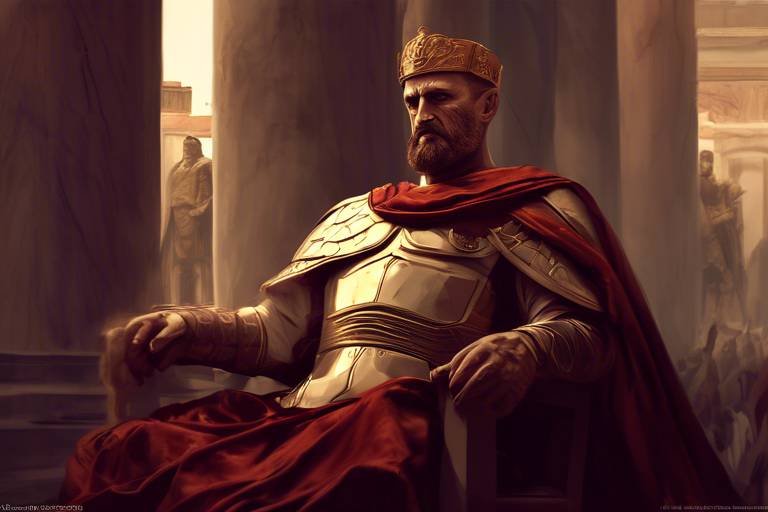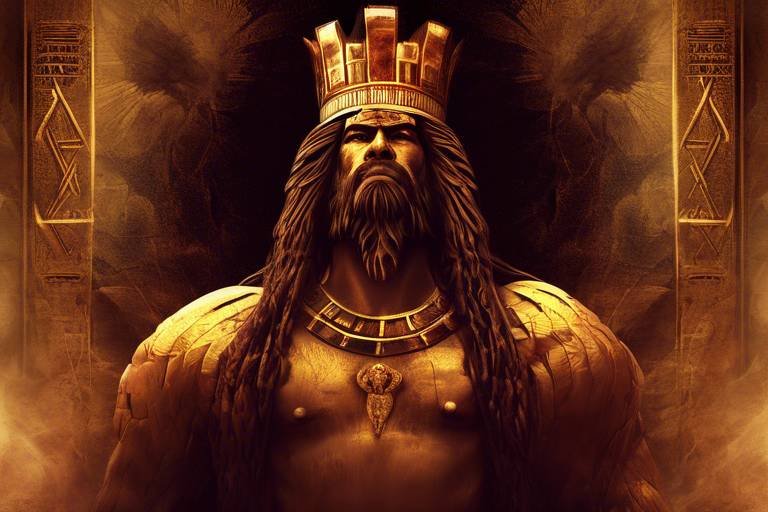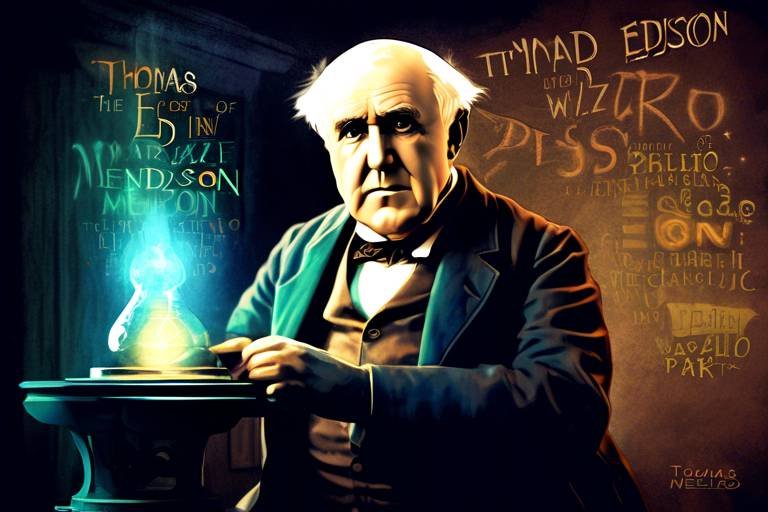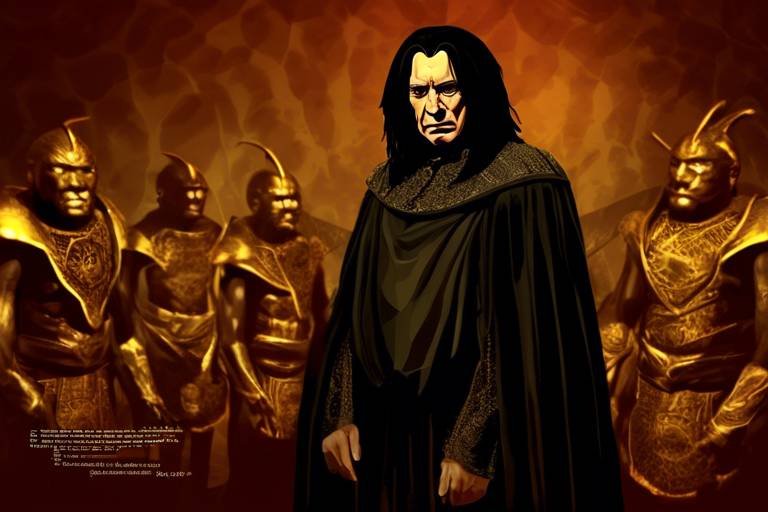Aurelian: The Emperor Who Saved the Empire
Emperors of ancient Rome often left a mark on history, but few had the impact and legacy of Aurelian. Born in humble origins, Aurelian rose to power during a time of chaos and uncertainty, becoming the emperor who would save the empire from collapse.

Early Life and Rise to Power
Aurelian, originally named Lucius Domitius Aurelianus, was born in humble circumstances in the province of Moesia, part of the Roman Empire. Little is known about his early life, but he rose through the ranks of the Roman army, displaying exceptional military prowess and leadership skills. His dedication and strategic acumen caught the attention of Emperor Gallienus, who appointed him as commander of the cavalry, a position that would prove pivotal in shaping Aurelian's destiny.
As the Roman Empire faced internal strife and external threats, Aurelian's leadership abilities shone brightly amidst the chaos. His decisive actions on the battlefield and unwavering commitment to the Empire's well-being earned him the respect and loyalty of his soldiers and fellow commanders. Through a series of successful campaigns, Aurelian demonstrated his capability to navigate the intricate web of Roman politics and warfare, paving the way for his ascent to the imperial throne.
The tumultuous times demanded a leader of exceptional skill and determination, and Aurelian proved to be the right man for the job. With a blend of military prowess, political savvy, and a deep sense of duty to Rome, he embarked on a journey that would see him rise from a modest background to become one of the most renowned emperors in Roman history. His path to power was marked by challenges and triumphs, shaping him into the formidable leader who would ultimately save the Empire from the brink of collapse.

Reunification of the Roman Empire
Known as the Emperor who rescued the Roman Empire from the brink of collapse, Aurelian's legacy is one of strength, determination, and unwavering loyalty to Rome. His remarkable reign marked a turning point in Roman history, where he not only reunited the fractured empire but also implemented crucial reforms that laid the foundation for its survival.
After the assassination of Emperor Gallienus in 268 AD, the Roman Empire plunged into chaos with multiple claimants vying for power. Amidst this turmoil, Aurelian, a skilled military commander, emerged as a beacon of hope. Through a series of strategic campaigns, Aurelian swiftly defeated his rivals and consolidated his rule, bringing stability to a war-torn empire.
One of Aurelian's most notable achievements was the reunification of the Roman Empire, which had been fragmented by secessionist movements and external threats. By decisively defeating the breakaway Palmyrene and Gallic Empires, Aurelian restored the territorial integrity of Rome and reestablished centralized authority.
His military prowess and diplomatic acumen were instrumental in securing the loyalty of disparate provinces and ensuring a sense of unity across the empire. Aurelian's vision of a strong and united Rome inspired loyalty and devotion among his subjects, paving the way for a new era of stability and prosperity.
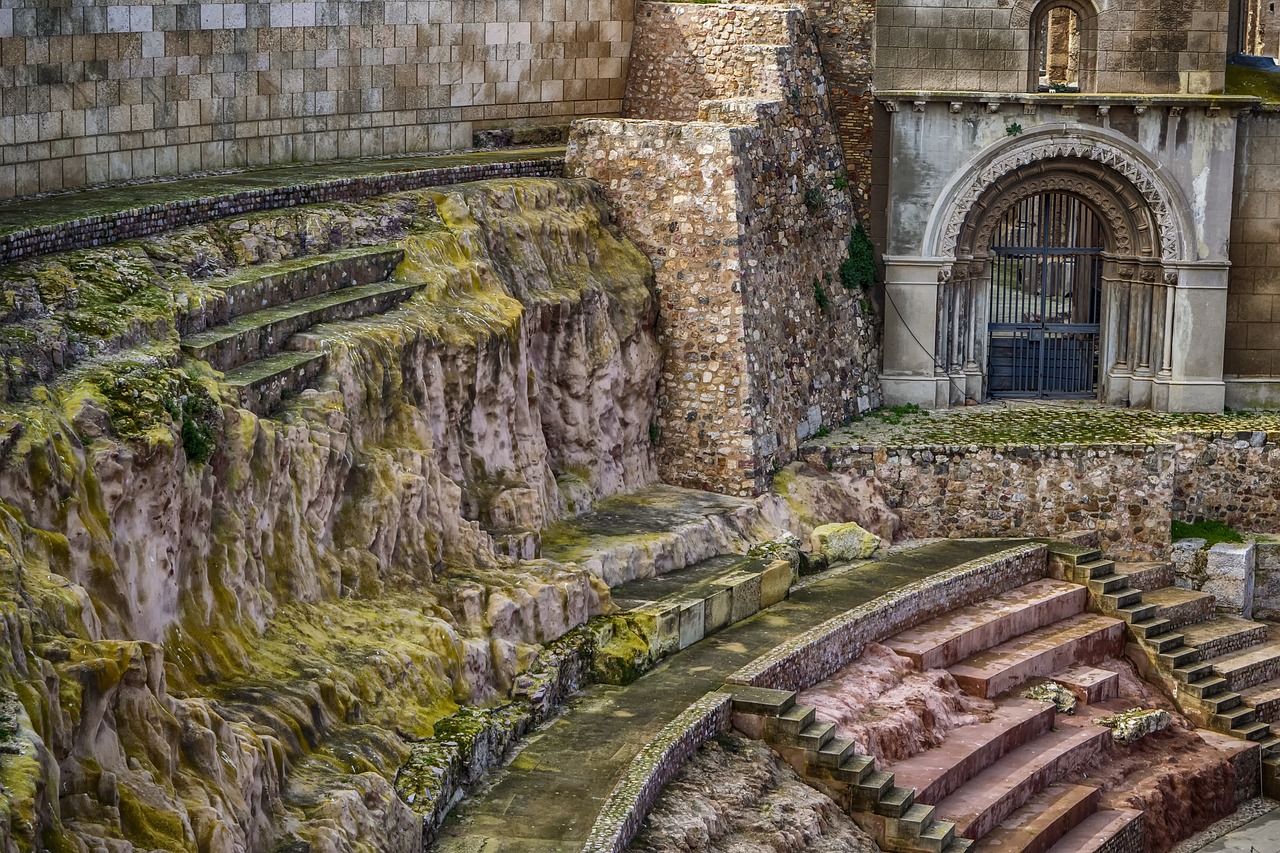
Defeat of the Gallic Empire
Known for his remarkable achievements and pivotal role in restoring the glory of the Roman Empire, Aurelian was a visionary leader whose legacy continues to inspire generations. In this article, we delve into the life and accomplishments of Aurelian, the Emperor who saved the empire from collapse and turmoil.
One of Aurelian's most significant military campaigns was the defeat of the Gallic Empire, a breakaway state that threatened the unity of the Roman Empire. With strategic brilliance and unwavering determination, Aurelian led his forces against the Gallic usurper Tetricus, decisively defeating him in the Battle of Châlons.
This victory marked a turning point in Aurelian's reign, demonstrating his military prowess and his commitment to restoring Roman authority. By crushing the Gallic Empire, Aurelian reasserted the supremacy of Rome and solidified his position as the rightful Emperor.
Furthermore, Aurelian's success in defeating the Gallic Empire paved the way for the reunification of the Roman territories, bringing stability and order to a fractured empire. His triumph over the Gallic forces resonated throughout the realm, sending a clear message that the Roman Empire was indivisible and invincible under his leadership.
1. What were Aurelian's major accomplishments as Emperor?
2. How did Aurelian's defeat of the Gallic Empire impact the Roman Empire?
3. What was the significance of the Battle of Châlons in Aurelian's reign?

Restoration of the Roman Economy
The under Emperor Aurelian's rule was a pivotal moment in the history of the Empire. Facing the aftermath of years of instability and economic turmoil, Aurelian implemented bold economic policies that aimed to revive the financial health of the Empire. One of his key initiatives was the reform of the currency system, which had been severely debased and contributed to rampant inflation. By issuing new, more stable coins and cracking down on counterfeiters, Aurelian managed to restore confidence in the Roman currency.
Moreover, Aurelian recognized the importance of agriculture as the backbone of the Roman economy. He implemented land reforms to ensure fair distribution of land among the population, aiming to boost agricultural productivity and stabilize food prices. These measures not only improved the living conditions of the common people but also strengthened the Empire's economic foundation.
In addition to his focus on currency and agriculture, Aurelian also prioritized trade and commerce. He encouraged long-distance trade by ensuring the safety of trade routes and promoting commercial activities within the Empire. This led to increased prosperity and economic growth, as merchants and traders flourished under his reign.
Furthermore, Aurelian's public works projects played a significant role in the economic recovery of the Empire. The construction of the Aurelian Walls not only provided security for Rome but also created employment opportunities for thousands of people, stimulating the local economy. These massive infrastructure projects not only showcased Aurelian's commitment to the defense of the Empire but also boosted economic activity in the region.
Overall, Aurelian's efforts to restore the Roman economy were instrumental in stabilizing the Empire and laying the groundwork for future prosperity. His visionary leadership and pragmatic economic policies set the stage for a period of renewed growth and stability that would benefit the Roman Empire for years to come.

Construction of the Aurelian Walls
The construction of the Aurelian Walls stands as a testament to Emperor Aurelian's foresight and dedication to fortifying the heart of the Roman Empire. In the face of external threats and invasions, Aurelian embarked on a monumental project to encircle Rome with a formidable defensive barrier. These walls, stretching over 12 miles and encompassing an area of approximately 3,500 acres, were a marvel of engineering and strategic planning.
Designed to protect the city from barbarian incursions and provide security for its inhabitants, the Aurelian Walls were constructed with a series of gates, watchtowers, and defensive fortifications. The sheer scale of the project required meticulous planning and coordination, showcasing Aurelian's ability to mobilize resources and manpower effectively.
One of the key features of the Aurelian Walls was their dual-purpose nature. Not only did they serve as a physical barrier against external threats, but they also symbolized the unity and strength of the Roman Empire under Aurelian's rule. The walls became a symbol of Roman power and resilience, instilling a sense of security and pride in the city's residents.
Moreover, the construction of the Aurelian Walls had a lasting impact on the defense and urban development of Rome. The presence of these formidable fortifications influenced the city's layout and architectural evolution, shaping its identity for centuries to come. The walls not only protected Rome physically but also contributed to its cultural and historical significance.

Victory Against the Palmyrene Empire
When Aurelian ascended to the throne, the Roman Empire was facing threats from all directions. The Palmyrene Empire, led by the formidable Queen Zenobia, had challenged Roman authority in the East and posed a significant danger to the stability of the empire. Aurelian, known for his strategic brilliance and military acumen, saw the threat posed by Palmyra and embarked on a campaign to restore Roman control in the region.
Aurelian's forces clashed with the Palmyrene armies in a series of fierce battles that tested the strength and resilience of both sides. Despite facing a well-trained and determined enemy, Aurelian's leadership and tactical prowess proved to be decisive. He outmaneuvered Queen Zenobia's forces, utilizing innovative strategies that caught the Palmyrenes off guard.
One of the key turning points in the conflict was the Battle of Emesa, where Aurelian's army achieved a decisive victory over the Palmyrene forces. This triumph not only secured Aurelian's hold on the East but also dealt a severe blow to the aspirations of Zenobia and the Palmyrene Empire.
As Aurelian marched triumphantly into Palmyra, Queen Zenobia's resistance crumbled, leading to her eventual capture. Despite her initial defiance, Zenobia was brought before Aurelian, who showed clemency and spared her life. The fall of Palmyra marked a significant victory for Aurelian and a testament to his military prowess and diplomatic skills.
Following the defeat of the Palmyrene Empire, Aurelian restored Roman authority in the East, bringing stability and order to a region that had been plagued by conflict and rebellion. His decisive actions not only secured the borders of the empire but also reaffirmed the strength and resilience of Roman power under his rule.
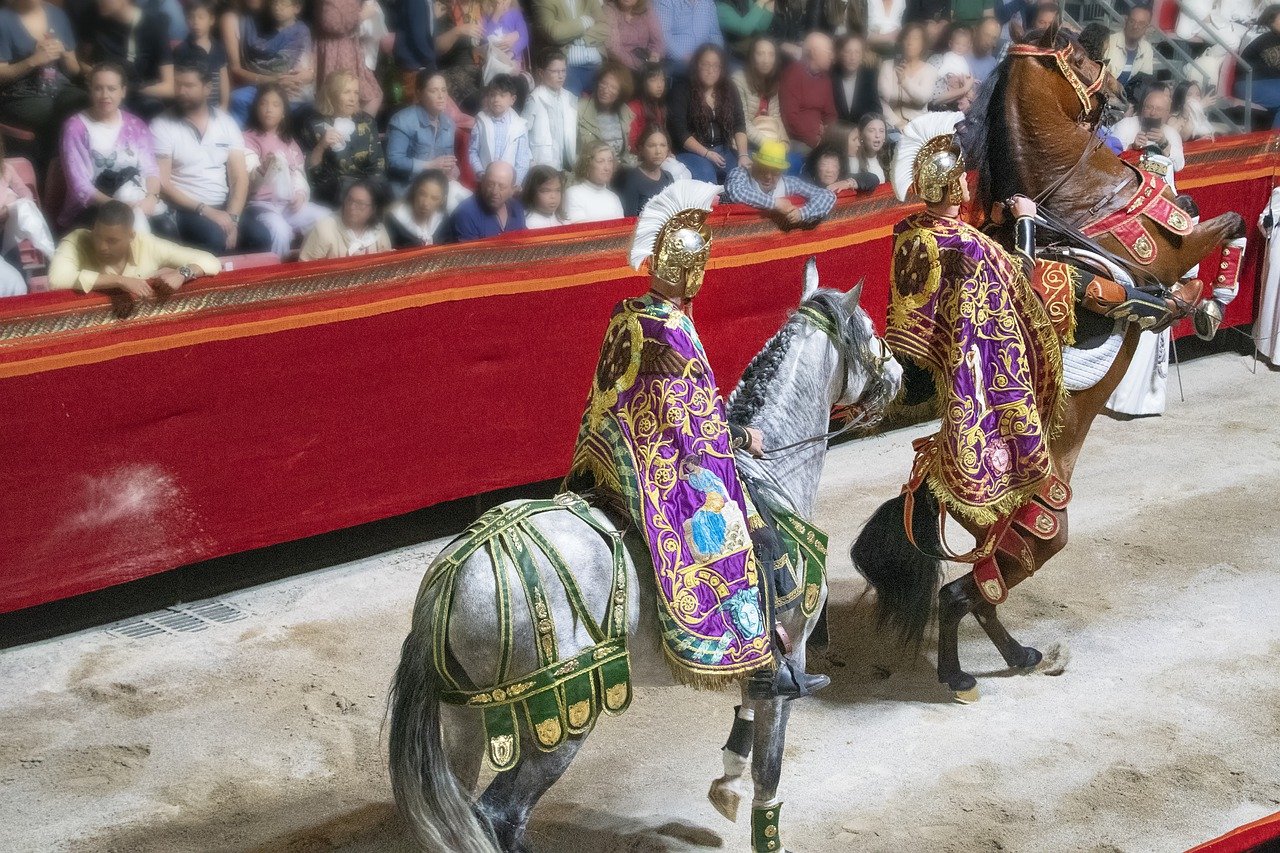
Reforms and Administrative Changes
During his reign, Aurelian implemented a series of that aimed to revitalize the Roman Empire and strengthen its governance. One of his notable reforms was the reorganization of the Roman coinage system, which helped stabilize the economy and restore confidence in the currency. Aurelian also centralized administrative power, streamlining the bureaucracy to improve efficiency and reduce corruption.
Furthermore, Aurelian instituted military reforms to enhance the effectiveness of the Roman army, ensuring it was well-equipped and disciplined to defend the empire's borders. His military reforms included the establishment of new legions and the implementation of strategic defense measures to protect the empire from external threats.
In addition to his economic and military reforms, Aurelian made significant changes to the administrative structure of the Roman Empire. He appointed capable officials to key positions, implemented a system of checks and balances to prevent abuse of power, and introduced reforms to ensure fair taxation and governance across the empire.
Moreover, Aurelian's administrative changes focused on improving infrastructure and communication within the empire. He initiated construction projects to repair and expand roads, bridges, and public buildings, facilitating trade and travel throughout the Roman territories. These infrastructure improvements not only boosted the economy but also strengthened the empire's unity and connectivity.
Overall, Aurelian's reforms and administrative changes played a crucial role in stabilizing the Roman Empire during a tumultuous period. By implementing strategic policies that addressed economic, military, and administrative challenges, Aurelian laid the foundation for a more efficient and resilient Roman state, ensuring its longevity and endurance in the face of external pressures and internal upheavals.

Assassination and Legacy
As Aurelian's reign as Emperor reached its peak, tragedy struck in the form of his assassination. In a shocking turn of events, Aurelian, the steadfast leader who had saved the empire from the brink of collapse, met his untimely end. The circumstances surrounding his assassination remain shrouded in mystery and intrigue, leaving historians to speculate on the motives behind this heinous act. Was it a political conspiracy, a personal vendetta, or a result of internal power struggles within the empire?
Despite the abrupt end to his life, Aurelian's legacy endured far beyond his death. Known as the Restorer of the World, Aurelian left an indelible mark on the Roman Empire through his military victories, administrative reforms, and unwavering dedication to the well-being of his people. His vision and leadership not only saved the empire from disintegration but also set the stage for future emperors to continue his legacy of strength and stability.
Upon his assassination, the empire mourned the loss of a remarkable leader who had brought unity and prosperity to a fractured land. The impact of Aurelian's death reverberated throughout the empire, with his supporters grieving the loss of a beloved emperor and his enemies seizing the opportunity to advance their own agendas.
As time passed, Aurelian's legacy only grew stronger, with subsequent generations honoring his memory as one of the greatest emperors in Roman history. His achievements in reuniting the empire, fortifying its defenses, and revitalizing its economy ensured that his name would be remembered for centuries to come. The Aurelian Walls, a testament to his commitment to protecting Rome, stand as a lasting reminder of his enduring legacy.
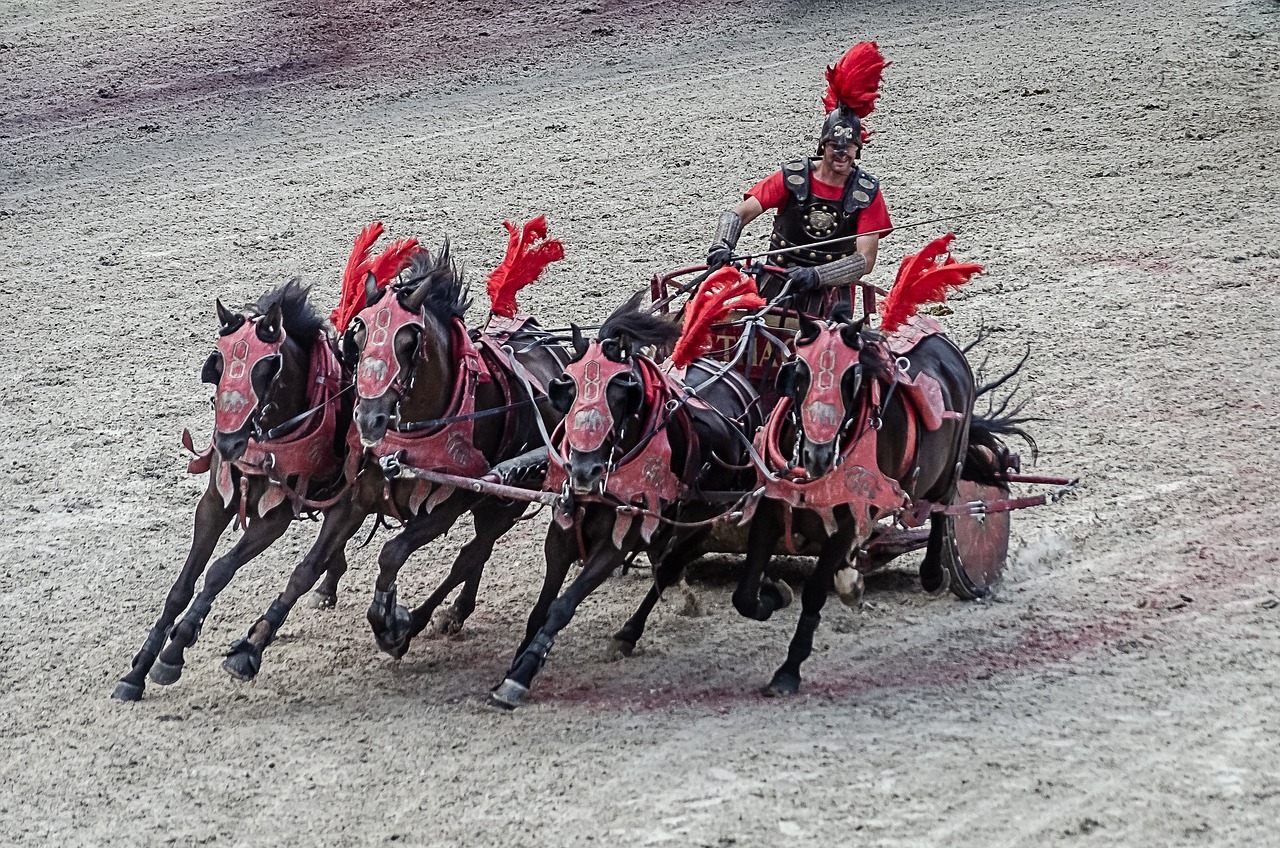
Restorer of the World.
The title "Restorer of the World" truly encapsulates the remarkable impact Aurelian had on the Roman Empire during his reign. Known for his strong leadership and strategic vision, Aurelian played a crucial role in stabilizing the empire during a period of significant unrest and turmoil. His efforts not only saved the empire from collapse but also set the stage for its continued existence and prosperity.
One of Aurelian's most significant achievements as the Restorer of the World was his successful reunification of the Roman Empire. By decisively defeating the breakaway Gallic Empire and the Palmyrene Empire in the East, Aurelian brought the empire back under centralized rule, ending years of division and internal strife. This restoration of unity and authority helped to strengthen the empire and ensure its survival in the face of external threats.
In addition to his military victories, Aurelian implemented a series of reforms and administrative changes that aimed to streamline governance and improve the efficiency of the Roman state. By instituting new policies to address economic challenges and strengthen the military, Aurelian laid the groundwork for a more stable and prosperous empire. His dedication to restoring order and stability earned him the title of the Restorer of the World among his contemporaries.
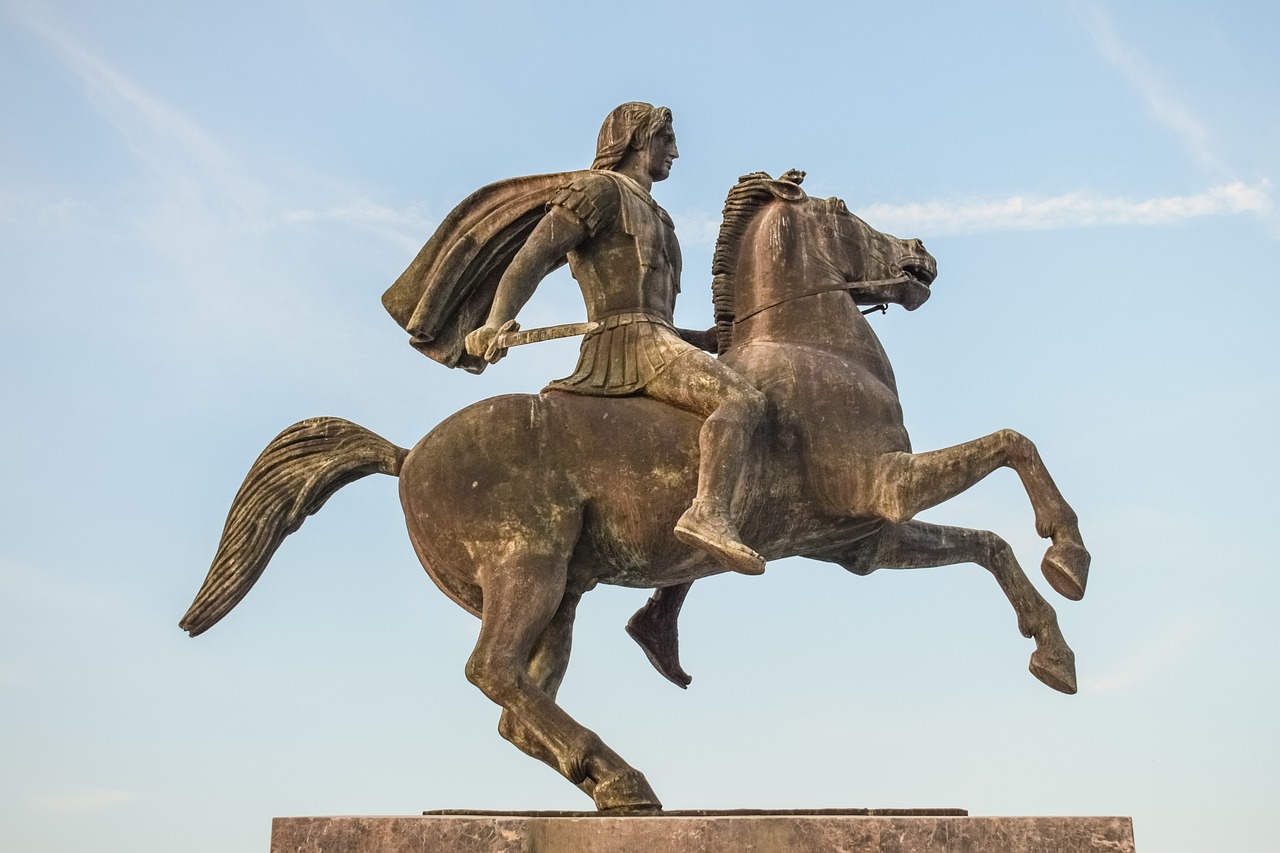
Historical Significance of Aurelian
Aurelian, known as the "Emperor Who Saved the Empire," left an indelible mark on Roman history with his remarkable leadership and strategic prowess. Born into humble beginnings, Aurelian rose to power through determination and military acumen, eventually ascending to the throne as the Emperor of Rome.
One of Aurelian's most significant achievements was the reunification of the Roman Empire, which had been torn apart by internal strife and external threats. Through a series of decisive military campaigns, Aurelian successfully brought the disparate regions back under Roman control, restoring unity and stability to the empire.
His defeat of the breakaway Gallic Empire further solidified his reputation as a formidable military leader. Aurelian's victory not only reasserted Roman authority but also demonstrated his unwavering commitment to preserving the integrity of the empire.
Moreover, Aurelian's economic policies played a crucial role in stabilizing the Roman economy, which had been in a state of turmoil for years. His reforms helped revitalize trade and commerce, laying the foundation for a period of renewed prosperity.
One of Aurelian's most enduring legacies is the construction of the formidable Aurelian Walls around Rome. These massive fortifications served as a symbol of the empire's strength and provided vital protection against external threats, ensuring the security of the imperial capital.
In the East, Aurelian's victory against the Palmyrene Empire further showcased his military prowess and strategic brilliance. By decisively defeating the Palmyrene forces, Aurelian restored Roman control in the region and reaffirmed the empire's dominance in the East.
Throughout his reign, Aurelian implemented a series of administrative reforms aimed at streamlining governance and strengthening the Roman state. His efforts to centralize power and improve the efficiency of the government laid the groundwork for future stability and prosperity.
Tragically, Aurelian's life was cut short by assassination, but his legacy as the Restorer of the World endured. His contributions to the survival and stability of the Roman Empire reverberated long after his death, earning him a place among the most revered emperors in Roman history.
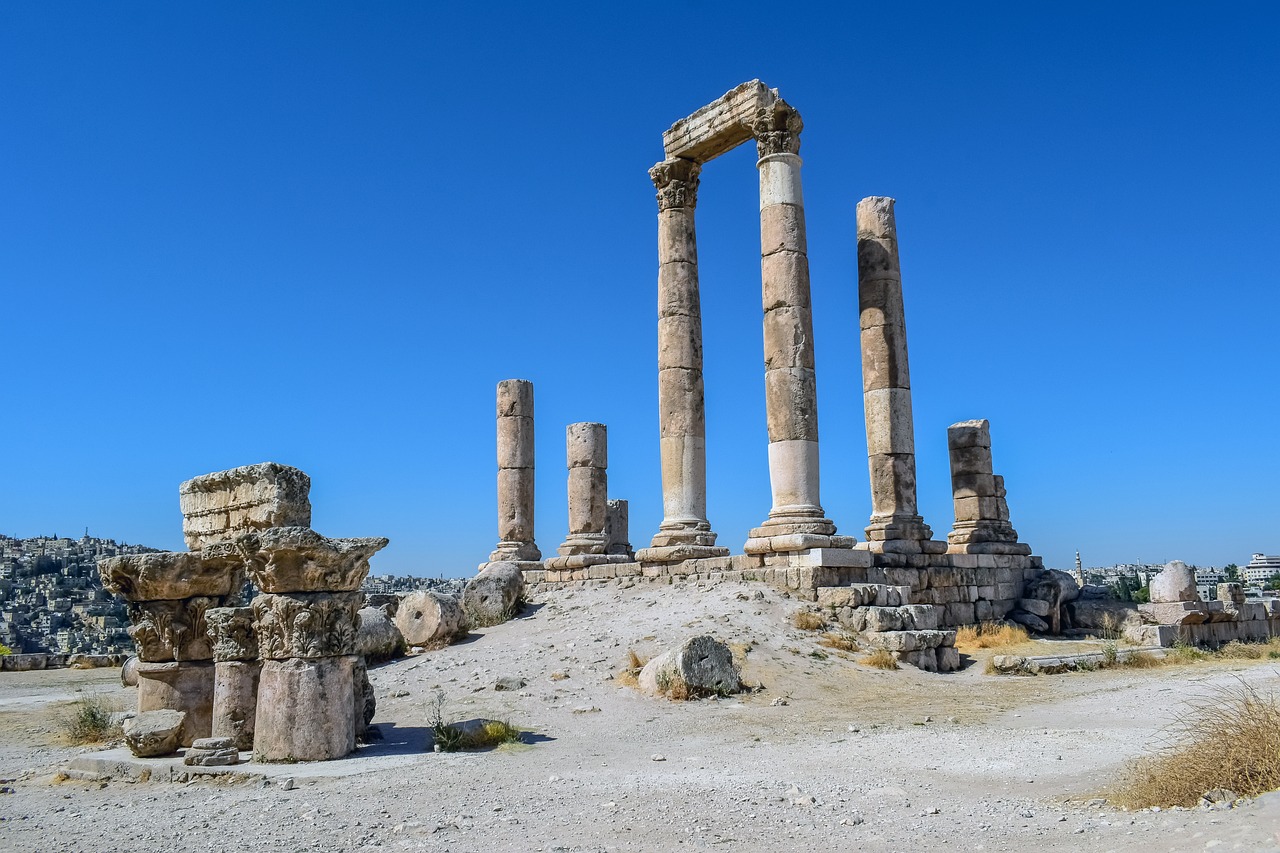
Historical Significance of Aurelian
When it comes to the historical significance of Aurelian, it is impossible to understate the impact this remarkable Emperor had on the Roman Empire. Aurelian's reign marked a pivotal moment in Roman history, characterized by both chaos and renewal. His leadership during a time of crisis was nothing short of legendary, earning him the title of the Restorer of the World.
One of the most notable aspects of Aurelian's legacy is his unwavering dedication to reunifying the fractured Roman Empire. In an era plagued by internal strife and external threats, Aurelian emerged as a beacon of stability and strength. Through his military campaigns and strategic vision, he was able to bring together the disparate parts of the Empire, restoring its unity and power.
Additionally, Aurelian's economic policies played a crucial role in stabilizing the Roman economy after years of turmoil. By implementing reforms aimed at bolstering trade, agriculture, and taxation, he laid the foundation for a period of prosperity that benefited the Empire for years to come.
Furthermore, Aurelian's construction of the formidable Aurelian Walls around Rome stands as a testament to his commitment to the city's defense and security. These massive fortifications not only protected the capital from external threats but also symbolized Aurelian's determination to safeguard the heart of the Empire.
His victory against the Palmyrene Empire in the East further solidified Aurelian's reputation as a military genius and a savior of the Roman world. By decisively defeating the forces of Queen Zenobia, Aurelian brought an end to the threat posed by the breakaway Palmyrene state and restored Roman control over the region.
Moreover, Aurelian's administrative reforms and governance changes aimed to streamline the bureaucracy of the Empire and strengthen its institutions. His efforts to centralize power and improve the efficiency of government operations set a precedent for future rulers and contributed to the longevity of Roman rule.
Despite his many achievements, Aurelian's reign was tragically cut short by his assassination. However, his legacy endured long after his death, with subsequent generations recognizing his pivotal role in preserving the Roman Empire during a time of great peril. Aurelian's memory lives on as a testament to the resilience and determination of the Roman people in the face of adversity.
Frequently Asked Questions
- Who was Aurelian?
Aurelian was a Roman Emperor who is known for his efforts in reuniting the fractured Roman Empire and restoring its former glory during the 3rd century AD.
- What were Aurelian's major accomplishments?
Aurelian is renowned for defeating the breakaway Gallic Empire, securing victory against the Palmyrene Empire, implementing significant economic reforms, and constructing the Aurelian Walls for the defense of Rome.
- Why is Aurelian considered significant in Roman history?
Aurelian is considered significant for his role in stabilizing the Roman Empire, restoring its territorial integrity, and implementing reforms that strengthened the economy and administration, leaving a lasting impact on the empire's survival.

